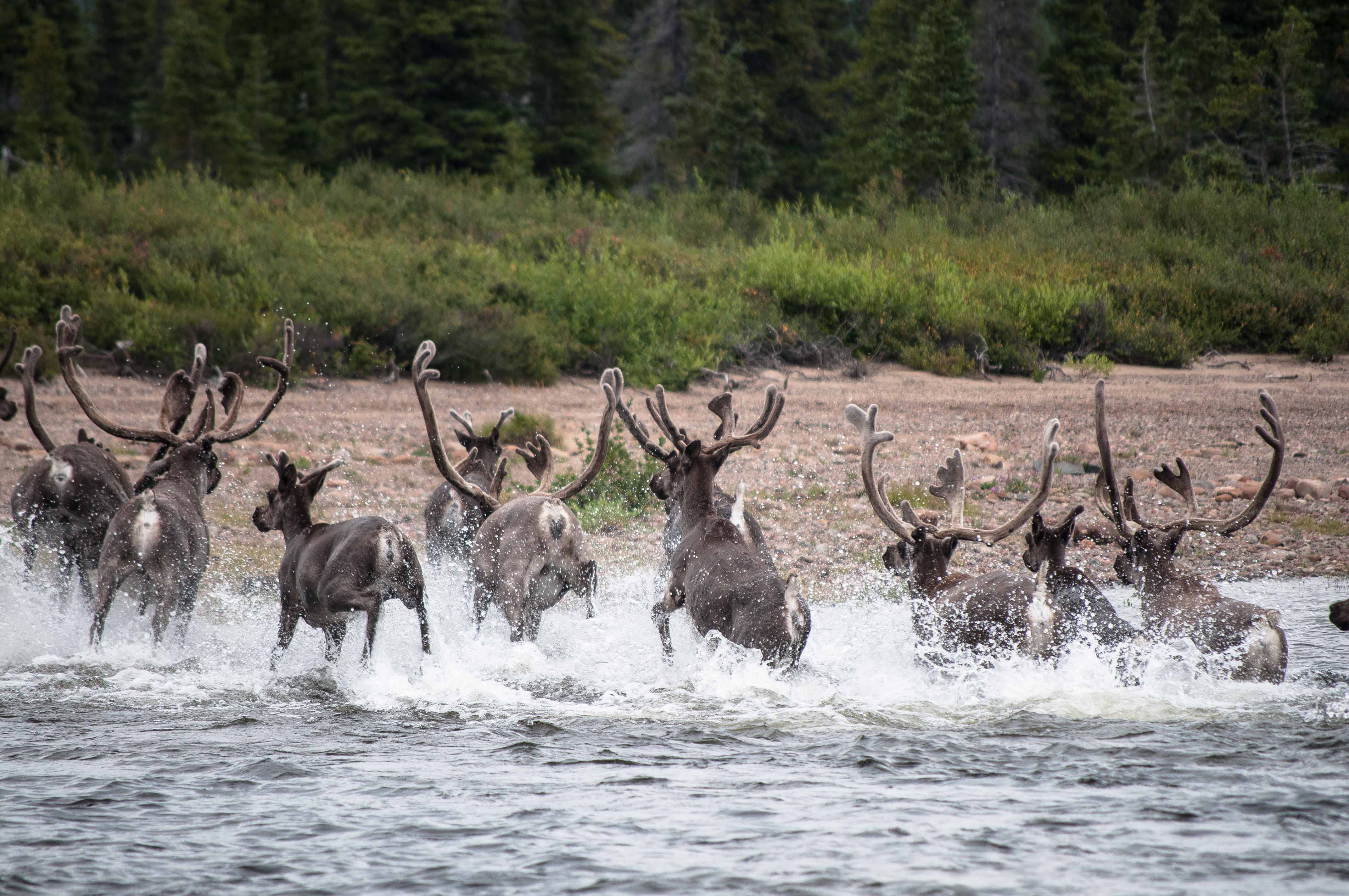Announcements
Top 10 2014 Stories: 7) Northern Quebec
George River caribou herd in Northern Quebec
Credit: Valerie Courtois
Quebec's Plan Nord has long been a top story for boreal watchers ever since former Premier Jean Charest made it one of his signature policies. Like Ontario's Far North Act, the Plan Nord's goal of protecting 50% of the north from any development and ensuring sustainable, responsible development in the remainder remains an inspiring goal.
2013 started on a bright note, with the newly elected Parti Quebecois government having just announced the creation of the 26,107-km² (2.6 million-hectare) Tursujuq National Park, which spans Quebec's boreal and arctic territory and is now the largest wilderness park in eastern North America.
Unfortunately, the new government then followed by backtracking on parts of the Plan Nord's conservation commitments, renaming the plan to "Nord pour Tous", removing the deadline of protecting half of the north by 2035, and replacing the interim goal of protecting 20% of the north by 2020 with a commitment of 12% by 2015. There is additional concern that the government will propose to change the wording of their commitment to allow for industrial logging in areas currently to be protected from all industrial activity.
In contrast, the First Nations and Inuit communities of Quebec have rapidly been advancing their own policies to protect the north. The Grand Council of the Crees and its member communities, for example, have developed a balanced conservation strategy for the Broadback River watershed that would include more than 9,000 km² (900,000 hectares) of new protected areas. One of the most exciting conservation initiatives in Quebec was the series of historic roundtables convened by Aboriginal leaders to collectively discuss the future of the George River and Leaf River caribou herds and develop a unified plan for ensuring the long-term health of caribou in Quebec. The Ungava Peninsula Caribou Aboriginal Round Table is now working on a management plan for the Ungava caribou herds to express their cultural responsibility to manage their relationship with caribou.
Despite the fact that government conservation commitments stalled in 2013, hopes remain high that in 2014, through on-the-ground leadership by Aboriginal peoples, Quebec will ultimately succeed in establishing the largest tracts of protected boreal forest in the world.
Resources
View Slideshow »


